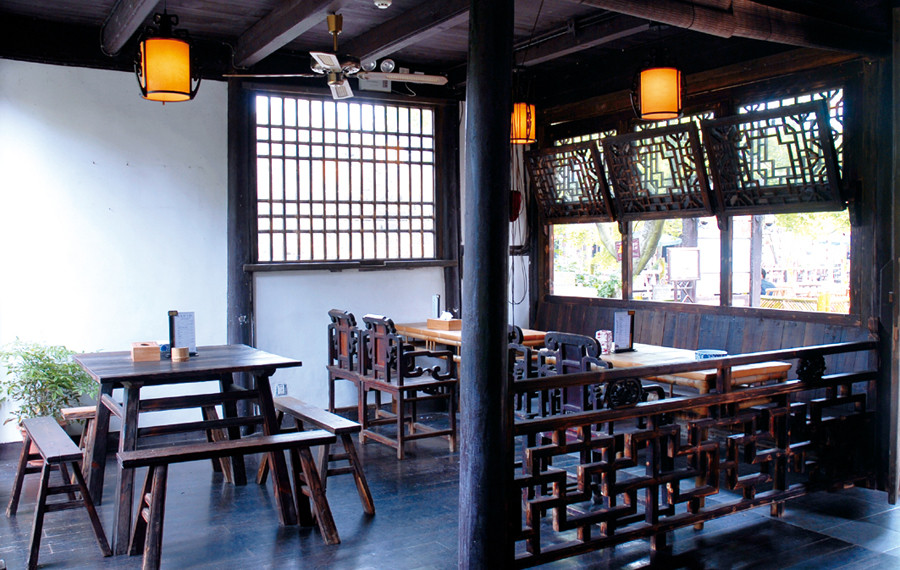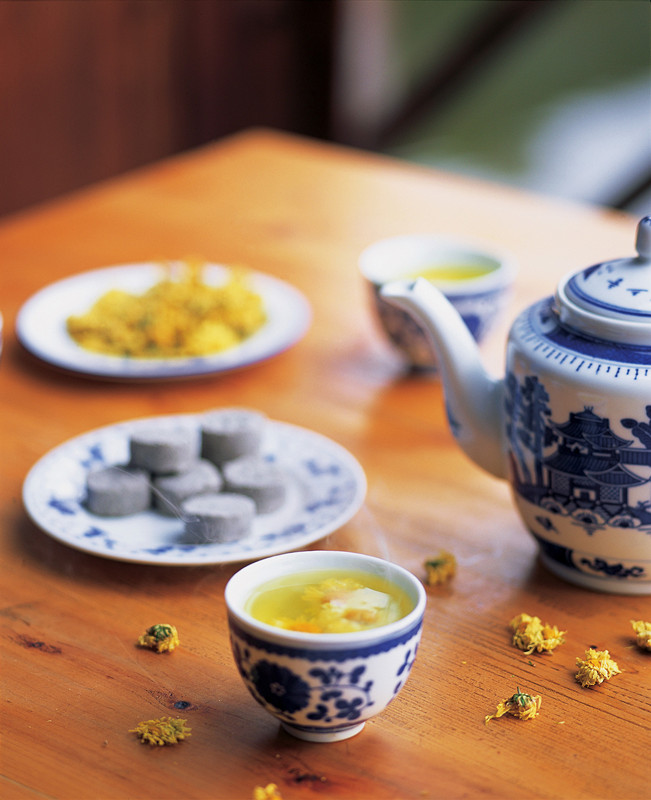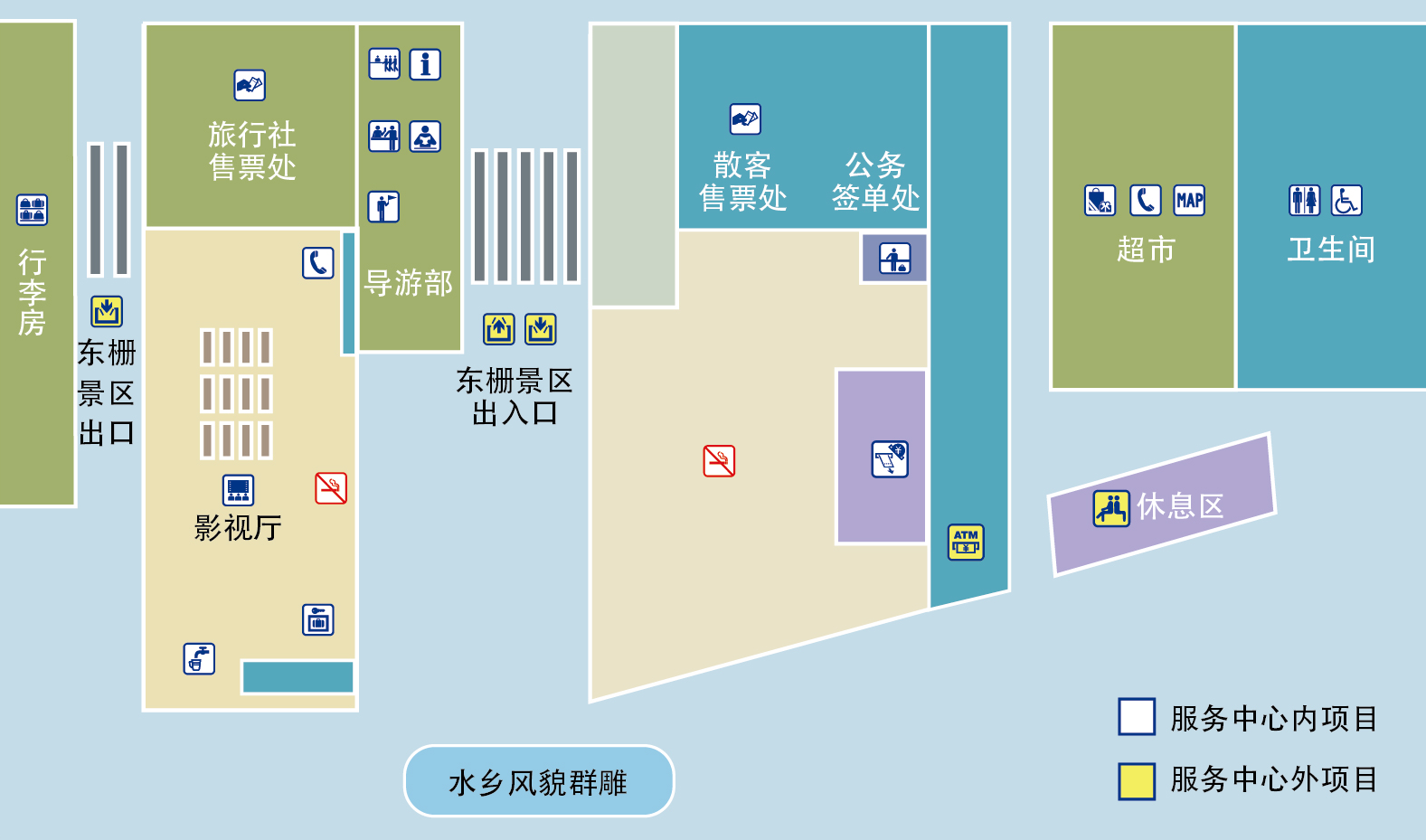

Teahouse style

Jiangnan is made of water, and the pervading water vapor throughout the four seasons makes people living here moist. In the water town, the two most enjoyable things in people's daily life are "water wraps skin" and "skin wraps water". The meaning of this witty phrase refers to taking a shower in the bathroom and drinking tea at a teahouse, indicating that drinking tea is a kind of enjoyment that permeates into the bones of water town people. Every morning, the charm of the Jiangnan water town unfolds in the curling water mist.
In history, there were more than sixty teahouses in Wuzhen at the most. The Fang Lu Ge, Sanyi Tower, Changchun Tower, Yidong Sky, Mingyue Tower, Tianyun Tower and so on located in the central city were relatively large in scale and of high quality, and the status of tea customers was also more prestigious; And the small tea houses scattered in the East, South, West and North Gates are all served farmers from the surrounding townships who come to the town to do business. Both have their own characteristics, the former is commonly known as Street Village, which is more elegant; But when it comes to reflecting the original taste and simplicity of water towns, the latter, commonly known as rural villages, is closer. The rural village only opens in the morning, while street village often opens in the afternoon. The most famous "Fang Lu Ge" teahouse not only appeared in the works of literary master Mao Dun, but also became famous due to the legend that tea sage Lu Yu visited the owner of the teahouse Lu Tong twice.
The reason why teahouses have gone through thousands of years of changes, ups and downs, and continue to this day is due to its role as a fundamental aspect of life. Some tea guests enter the teahouse after finishing the morning market and chat casually with their neighbors sitting around the table; some people sneak into tea houses as soon as they arrive at the morning market, trading at tea tables on the street, leisurely drinking tea while calmly bargaining. In the era of outdated information dissemination, teahouses were important places for information exchange and handling public affairs. A teahouse was the "Xinhua News Agency" of a small town, where all kinds of news were released. The Yangtze River floods, this year's silkworms’ growing, Li family got a daughter-in-law, and the Zhang family's flower cat gave birth to five cubs... lively and noisy, but with endless fun. Nowadays, although village radio, newspapers, and television have become the fastest channels for news dissemination, tea guests still enjoy chatting in teahouses, and that kind of zero distance communication is truly irreplaceable by any media.



